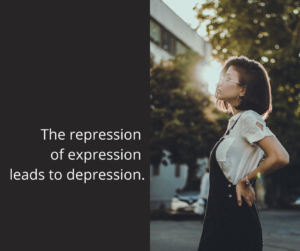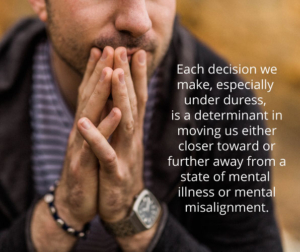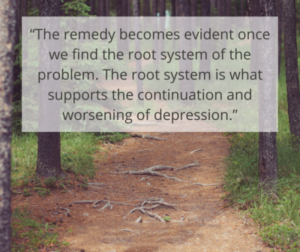4 Common Challenges of Teenagers
There is no doubt that raising teenagers can be extremely challenging. Hormones, significant life changes, and a fair dose of sassy attitude can cause parents to despair as they attempt to healthily discipline their fast-growing kids. In this article, we’ll discuss four of the most common challenges of teenagers to help parents prepare and empathize with their teens.
 Though this stage of life may be a distant memory for you personally, it is important to be empathetic to your kids as they navigate through this often confusing and emotionally-charged period of their lives and face some of the common challenges of teenagers.
Though this stage of life may be a distant memory for you personally, it is important to be empathetic to your kids as they navigate through this often confusing and emotionally-charged period of their lives and face some of the common challenges of teenagers.
Being a teenager has always been pretty tough, of that there is no doubt! However, hitting the high school years is full of challenges for teenagers — with social media, image-obsessed modern culture, and complex friendship and relationship dynamics and pressures, it really is a minefield out there!
So, with all that in mind, parents of teenagers certainly need some additional support when it comes to dealing with their kids effectively and in a way that is going to nurture and support them through these often troubling days. Newport Beach Christian Counseling offers guidance to help parents navigate these challenges with compassion and understanding.
Facing Common Challenges of Teenagers
Tackling issues head on is one of the first things you commit to doing. However, you must be aware of what you are dealing with. So let’s take a look at some of the key obstacles and challenges of teenagers today, and explore how parents can assist their kids in successfully working through them!
Social media struggles
Over the past decade, social media has proliferated across the teenage demographic. Nowadays, it is extremely rare to come across a teen who has withdrawn themselves from Instagram, Facebook or Twitter. As such, the pressures to present a certain image have spiraled out of control.
The purpose of social media is to connect people with each other. Instagram, for example, gives us a view into the lives of others and offers the opportunity to share significant experiences with loved ones. However, it can also cause fierce comparison and body image issues.
With celebrities garnering several million followers and uploading a stream of glamorous selfies, it only follows that impressionable young teenagers will attempt to emulate their icons and, inevitably, feel inferior as a result.
Social media is very rarely an accurate representation of the person’s real life, and yet, teenagers may fall victim to thinking that they must live up to a particular image or look. This striving can cause deeply-rooted issues.
 In addition, social media perpetuates another unpleasant issue — cyber bullying. With private messages open, and with anyone open to comment on your appearance, bullying is a common and corrosive issue among this age group.
In addition, social media perpetuates another unpleasant issue — cyber bullying. With private messages open, and with anyone open to comment on your appearance, bullying is a common and corrosive issue among this age group.
As with any of these social tools, they can be both a blessing and a curse. The key for parents is to ensure that there is no secrecy about what is going on within their social media accounts. Keep the lines of communication open and ensure that your child feels comfortable to disclose any strange or nasty things taking place on their social media profiles.
Substance use
It is not uncommon for teenagers to experiment with various substances during their high school years. While this can be a serious concern, it is important to highlight that this usage may be for a number of different reasons, such as peer pressure, curiosity, or even as a way of self-medicating an undiagnosed mental health condition like depression.
While minor usage might be harmless, with the wide variety of dangerous drugs available today, it is important to keep a handle on what your teenager is getting up to. Anyone, no matter how young, is at risk of falling into addiction after experimenting with drugs.
In addition, due to the fact that a teenager’s brain has not fully developed, addiction and the impact of psychoactive substances can be extremely harmful and detrimental to healthy growth and cognitive development.
Drugs that are often prevalent among teenagers include marijuana, alcohol, nicotine (cigarettes, e-cigarettes/vapes, cigars), synthetic marijuana (sometimes known as Spice), prescription drugs, hallucinogens, and inhalants.
All of these, if taken regularly, can drastically alter the mental state of teenagers and may hamper their school work, impede their relationship building and even get them into legal trouble. Due to the serious nature of drug and alcohol abuse, it is of vital importance that you talk openly with your teenager about how they can, with confidence, say “no” to these harmful substances.
Self-exploration
 The adolescent years can be extremely confusing, as you are met with deep questions over purpose and identity. What are you going to do after finishing school? Who are the friends that will stick by you? What is the true meaning of your life?
The adolescent years can be extremely confusing, as you are met with deep questions over purpose and identity. What are you going to do after finishing school? Who are the friends that will stick by you? What is the true meaning of your life?
Obviously, these are expansive questions that need a great amount of thought. However, as is often the case among teenagers, it can be common to see a “mask” being worn as a protection against this scary and uncertain outside world. With all that teenagers face, and with peer pressure and social judgement a perpetual threat, it is incredibly difficult for young people to show their true colors. Instead, hiding behind a mask and taking on a particular persona becomes very common.
With so much energy being spent on keeping up appearances, teenagers can experience deep exhaustion from attempting to present as a particular type of person. There is so much pressure on kids these days, with competitive sports teams, social media comparisons and often wildly unrealistic academic expectations.
It can be absolutely overwhelming, and parents must be constantly aware of the mental state of their teen as a result. It is important that parents reassure their kids that while striving for excellence can be a wonderful thing, it is not the ultimate goal. Parents must ensure that their teenagers know that first and foremost, and ahead of all the academic and sporting targets and pressures, they are simply loved unconditionally.
Sexual curiosity
As kids grow into teenagers, the whole area of sex becomes an issue that must be approached with sensitivity and caution. Naturally, they will be curious about this significant part of the human experience. As such, parents should always ensure that their teenager feels comfortable talking about the subject as they see fit.
Dating and all that this entails may also become a significant factor in your teenager’s life. Again, it is important to show unwavering support in the face of many questions your child may have regarding the emotional aspects of entering into a romantic relationship with another person.
Of course, in a Christian home, it is important to open up discussion over abstinence and sex before marriage. In addition, and in light of social media pressures, it is crucial to address issues of photo sharing and inappropriate  messaging.
messaging.
Teens should feel empowered to say “no,” and parents must play a pivotal role in making sure that their children know this. Too often, sexual encounters become common among teenagers and are put forward as a social norm.
It is important that parents make it clear to their kids that they are not “weird” if they choose to abstain from sexual activity – in fact, it is quite the opposite! Teenagers who show restraint from getting involved in potentially harmful behavior are wise beyond their years, are saving much future heartbreak, and must be encouraged.
Too often, sexual relations among teenagers are related to low self-esteem and a lack of self-worth. Youngsters regularly enter into a sexual relationship because they believe this will help them feel as if they truly belong.
This is a tragic thing that must be addressed with your teenager. Above all, ensure that your child knows that they are loved unconditionally and that they are not to feel any pressure to get involved in anything of a sexual nature with their peers.
Christian Counseling for Teens
As you can see, teenagers today face a plethora of complex issues, both relational and emotional. Parenting at this stage, therefore, is never going to be easy. It is of vital importance that parents remember to encourage and validate their teen. Of course, there will be times where correction and discipline are essential, but this must be administered alongside an outward expression of love and care.
If your teenager feels empowered to make good decisions that might even make them unpopular among some of their friends, they will set themselves in good stead for the future.
While not every conversation will be easy and comfortable, it is crucial that you create a home environment for your child that is safe, secure and open — make sure they know that your door is always open and that they can talk to you about absolutely anything.
Of course, this isn’t always possible, and sometimes you will need assistance in dealing effectively with the emotional complexities that your teenager might be facing.
If this is the case, a trained professional may be of huge help in opening up the lines of communication between you and your child. They will be able to assist you in developing a safe space for your son or daughter to open up about their feelings, process emotions, and navigate the way ahead through these common challenges of teenagers. Newport Beach Christian Counseling is here to provide the support and tools necessary to foster healthy communication and emotional growth.
Lastly, if your teenager is going through a particularly difficult time, make sure that you remind them that it will not last forever. There is always a hope and a future for them. Of this, you can be sure.
“Friends in a Field”, Courtesy of Melissa Askew, Unsplash.com, CC0 License; “Marijuana”, Courtesy of Rick Proctor, Unsplash.com, CC0 License; “Angst”, Courtesy of Graham Wizardo, Pexels.com, CC0 License; “Strong,” courtesy of Christopher Campbell, unsplash.com, CC0 License

 Underlying medical conditions (such as thyroid or hormonal issues), use or abuse of prescription medication or other substances (alcohol, marijuana, etc.), a lack of adequate nutrition (eating too much sugar or processed foods) or physical activity, and any pre-existing addictions may contribute to the development of depression.
Underlying medical conditions (such as thyroid or hormonal issues), use or abuse of prescription medication or other substances (alcohol, marijuana, etc.), a lack of adequate nutrition (eating too much sugar or processed foods) or physical activity, and any pre-existing addictions may contribute to the development of depression.

 Problematic patterns of intrapersonal relating (the way we relate to ourselves generally as well as how we respond when disappointed, hurt, or rejected) tend to be overlooked and/or misunderstood in terms of their contribution to the development of depression and other mood disorders.
Problematic patterns of intrapersonal relating (the way we relate to ourselves generally as well as how we respond when disappointed, hurt, or rejected) tend to be overlooked and/or misunderstood in terms of their contribution to the development of depression and other mood disorders. Forgiveness is a major theme in the Bible, if not the theme. It is a part of the whole narrative of scripture, describing the process of the fall of man in sin and God’s forgiveness of sin through the life, death, and resurrection of Jesus.
Forgiveness is a major theme in the Bible, if not the theme. It is a part of the whole narrative of scripture, describing the process of the fall of man in sin and God’s forgiveness of sin through the life, death, and resurrection of Jesus. “A process that allows you to untangle the relationship among your thoughts, your actions, and the responses of your body. As you’ll see, forgiving people for what they did doesn’t mean forgetting what they did. It also doesn’t mean accepting it, excusing it, defending it, or being neutral about their nasty actions. It doesn’t mean becoming passive and taking no action to make things better. Rather, forgiving requires developing a better understanding of the actions of others and taking steps to improve your family life, work life, and overall happiness. Forgiveness means letting go of the anger.”
“A process that allows you to untangle the relationship among your thoughts, your actions, and the responses of your body. As you’ll see, forgiving people for what they did doesn’t mean forgetting what they did. It also doesn’t mean accepting it, excusing it, defending it, or being neutral about their nasty actions. It doesn’t mean becoming passive and taking no action to make things better. Rather, forgiving requires developing a better understanding of the actions of others and taking steps to improve your family life, work life, and overall happiness. Forgiveness means letting go of the anger.” Step 1: Uncover anger
Step 1: Uncover anger Offer forgiveness to them, even if (when) they do not deserve it. It could be as simple as stating, “I am choosing to forgive you.” This is an act of grace and mercy toward another. It demonstrates to them that you are letting it go, and it gives them a picture of the way Christ forgives them, too.
Offer forgiveness to them, even if (when) they do not deserve it. It could be as simple as stating, “I am choosing to forgive you.” This is an act of grace and mercy toward another. It demonstrates to them that you are letting it go, and it gives them a picture of the way Christ forgives them, too. In general terms, depression is a state of being. “Being,” in this case, is an active experience of the three dimensions of depression, which are feelings, thoughts, and behaviors. Any definition of depression that excludes one or more of these elements is inaccurate and misleading. Depression, then, is an active depressing of our thoughts, feelings, and actions. When something is depressed, it is pressed down.
In general terms, depression is a state of being. “Being,” in this case, is an active experience of the three dimensions of depression, which are feelings, thoughts, and behaviors. Any definition of depression that excludes one or more of these elements is inaccurate and misleading. Depression, then, is an active depressing of our thoughts, feelings, and actions. When something is depressed, it is pressed down. The question you must ask yourself is, “Is what I am experiencing interfering with my ability to live and enjoy life?” If the answer is yes, depression counseling may be the solution for you. To help you answer this question (for yourself or a loved one), consider the following real-life manifestations of a depressed state of being.
The question you must ask yourself is, “Is what I am experiencing interfering with my ability to live and enjoy life?” If the answer is yes, depression counseling may be the solution for you. To help you answer this question (for yourself or a loved one), consider the following real-life manifestations of a depressed state of being. Severe experiences of depression are avoidable. We are beings crafted for connection. When we begin to feel sad, we sometimes isolate ourselves particularly from those who love us the most. We fear judgment from others, and most of us consider therapy or counseling a last resort because of the following myths and false beliefs. Have any of these thoughts prevented you from seeking depression counseling?
Severe experiences of depression are avoidable. We are beings crafted for connection. When we begin to feel sad, we sometimes isolate ourselves particularly from those who love us the most. We fear judgment from others, and most of us consider therapy or counseling a last resort because of the following myths and false beliefs. Have any of these thoughts prevented you from seeking depression counseling? You were not designed to live life, do life, and cope with life on your own. Look back to the beginning. God created Eve to give Adam a companion. God knew it was not good for a person to be alone, or to walk through life’s mountains and valleys alone.
You were not designed to live life, do life, and cope with life on your own. Look back to the beginning. God created Eve to give Adam a companion. God knew it was not good for a person to be alone, or to walk through life’s mountains and valleys alone. There are a variety of causes of depression and reasons why people become depressed. A mixture of genetics, brain chemistry, and family history each play a role in developing depression. Certain individuals may have a biological predisposition for developing mood issues when faced with overwhelming stressors.
There are a variety of causes of depression and reasons why people become depressed. A mixture of genetics, brain chemistry, and family history each play a role in developing depression. Certain individuals may have a biological predisposition for developing mood issues when faced with overwhelming stressors. There is a wide range of assorted symptoms involved in each individual experience of depression. Each person will have a different combination of symptoms which fit one or more types or patterns of depressions.
There is a wide range of assorted symptoms involved in each individual experience of depression. Each person will have a different combination of symptoms which fit one or more types or patterns of depressions.




 Fortunately, behavioral changes can be made with the right help and if the individual desires to seek such changes. Cognitive Behavioral Therapy (CBT), for example, is one method that seeks to make incremental adjustments in how the person reacts to situations, aiming for more positivity than before.
Fortunately, behavioral changes can be made with the right help and if the individual desires to seek such changes. Cognitive Behavioral Therapy (CBT), for example, is one method that seeks to make incremental adjustments in how the person reacts to situations, aiming for more positivity than before. The human brain is an amazing phenomenon. It is capable of so many incredible and complicated things, but it can also be a place of great struggle. Human beings fight battles in their minds daily. They battle cognitive distortions that can greatly impact emotions and behavior.
The human brain is an amazing phenomenon. It is capable of so many incredible and complicated things, but it can also be a place of great struggle. Human beings fight battles in their minds daily. They battle cognitive distortions that can greatly impact emotions and behavior.  Control Fallacies: when someone believes the illusion of being in control of everything in their life (whether internally or externally).
Control Fallacies: when someone believes the illusion of being in control of everything in their life (whether internally or externally). Cognitive Behavioral Therapy is an evidence-based form of psychotherapy that focuses on thought patterns- what they are, how to evaluate them, and how to replace them with more accurate and helpful thoughts. The goal is for the altered thoughts to then positively affect one’s emotions and behaviors (as stated earlier about the Cognitive Triangle).
Cognitive Behavioral Therapy is an evidence-based form of psychotherapy that focuses on thought patterns- what they are, how to evaluate them, and how to replace them with more accurate and helpful thoughts. The goal is for the altered thoughts to then positively affect one’s emotions and behaviors (as stated earlier about the Cognitive Triangle). After evaluation, it is necessary to replace. This is how you can literally renew your mind. This is how to train your brain to think differently. For example, instead of allowing yourself to automatically think about getting in a car accident every time you get in your car (which leads to anxiety), you could think something like this, “Well, I do not know anything that will happen in the future. All I know is that right now, I am safe.”
After evaluation, it is necessary to replace. This is how you can literally renew your mind. This is how to train your brain to think differently. For example, instead of allowing yourself to automatically think about getting in a car accident every time you get in your car (which leads to anxiety), you could think something like this, “Well, I do not know anything that will happen in the future. All I know is that right now, I am safe.” Lisa began her day by announcing, “Good Morning!” in a groggy, insincere voice. She tossed and turned all night over her father’s unexpected diagnosis, not knowing how to stop worrying about what might happen. Her anxiety builds and sweat beads on her upper lip as she mentally reviews her to-do list.
Lisa began her day by announcing, “Good Morning!” in a groggy, insincere voice. She tossed and turned all night over her father’s unexpected diagnosis, not knowing how to stop worrying about what might happen. Her anxiety builds and sweat beads on her upper lip as she mentally reviews her to-do list. The National Institute of Mental Health describes the symptoms of General Anxiety Disorder as:
The National Institute of Mental Health describes the symptoms of General Anxiety Disorder as: Imagine Lisa sipping her chamomile tea before bed as she looks over a Bible verse that she is memorizing. She sets her alarm an hour early so that she can enjoy a healthy breakfast and spend quiet time alone with God.
Imagine Lisa sipping her chamomile tea before bed as she looks over a Bible verse that she is memorizing. She sets her alarm an hour early so that she can enjoy a healthy breakfast and spend quiet time alone with God. Or, Lisa may have another anxiety disorder that can only be diagnosed by a psychiatrist or specialized counselor such as: Post Traumatic Stress Disorder, Social Anxiety Disorder, Panic Disorder, Phobias, or Obsessive Compulsive Disorder.
Or, Lisa may have another anxiety disorder that can only be diagnosed by a psychiatrist or specialized counselor such as: Post Traumatic Stress Disorder, Social Anxiety Disorder, Panic Disorder, Phobias, or Obsessive Compulsive Disorder.
 A commitment restricts your freedom. Isn’t that the root of your fear? When you keep your options open, you still feel free. But there’s a problem with this kind of freedom. When we always keep our options open, we never get to enjoy the rewards of commitment – a fulfilling marriage, for example, or a rewarding career.
A commitment restricts your freedom. Isn’t that the root of your fear? When you keep your options open, you still feel free. But there’s a problem with this kind of freedom. When we always keep our options open, we never get to enjoy the rewards of commitment – a fulfilling marriage, for example, or a rewarding career. It’s crucial to listen to your intuition in every relationship, not just romantic ones, but especially before you make a lifetime commitment to someone. A fear of commitment and a sense that something is wrong or unhealthy are two different things.
It’s crucial to listen to your intuition in every relationship, not just romantic ones, but especially before you make a lifetime commitment to someone. A fear of commitment and a sense that something is wrong or unhealthy are two different things. Recognize that regret is part of life. None of us have perfect foresight and unrestricted freedom. Every choice we make to do one thing is a choice not to do something else. None of us will choose perfectly. Our realities will always be limited by our own decisions.
Recognize that regret is part of life. None of us have perfect foresight and unrestricted freedom. Every choice we make to do one thing is a choice not to do something else. None of us will choose perfectly. Our realities will always be limited by our own decisions. Words can be a funny thing. Over time, their meaning can change and new words come into our vernacular. One word you might be hearing more often is “Enneagram.” For those who don’t know what it is, it might sound like a diagram. Others think it’s a medical tool, like a sonogram. Often people hear it and think it’s something scientific that doesn’t apply to them.
Words can be a funny thing. Over time, their meaning can change and new words come into our vernacular. One word you might be hearing more often is “Enneagram.” For those who don’t know what it is, it might sound like a diagram. Others think it’s a medical tool, like a sonogram. Often people hear it and think it’s something scientific that doesn’t apply to them. The exact origins of the Enneagram personality test are a mystery. It’s an ancient method for understanding human personality. This tool has been used by Christians and other religions around the world for centuries.
The exact origins of the Enneagram personality test are a mystery. It’s an ancient method for understanding human personality. This tool has been used by Christians and other religions around the world for centuries. It can be far too easy to take a personality test and never think about it again. We take the test everyone on Facebook is taking, think “hm, that’s interesting,” post our results, and never think about it again. Even with a tool this transformative, this still happens. There is an urge to find out our type without exploring it so we feel like we fit in is for all of us.
It can be far too easy to take a personality test and never think about it again. We take the test everyone on Facebook is taking, think “hm, that’s interesting,” post our results, and never think about it again. Even with a tool this transformative, this still happens. There is an urge to find out our type without exploring it so we feel like we fit in is for all of us. It seems to be especially difficult to find one’s type if someone has been through trauma, chronic stress, or other challenging situations recently. In those situations, we often lean towards a different type. It’s not at all uncommon for someone to type themselves then study more or come out a chaotic life situation to realize they were actually a different type.
It seems to be especially difficult to find one’s type if someone has been through trauma, chronic stress, or other challenging situations recently. In those situations, we often lean towards a different type. It’s not at all uncommon for someone to type themselves then study more or come out a chaotic life situation to realize they were actually a different type.